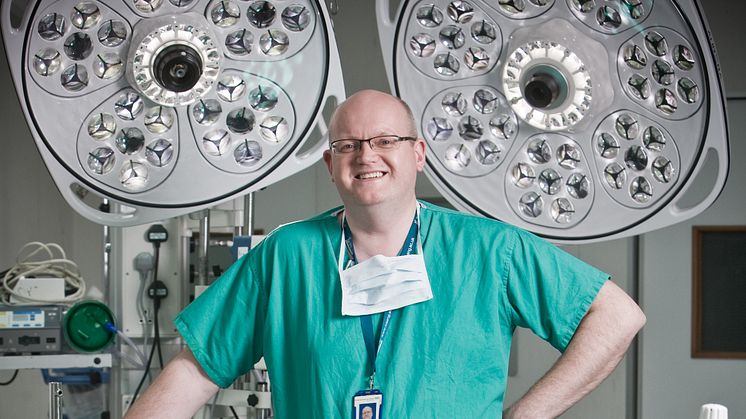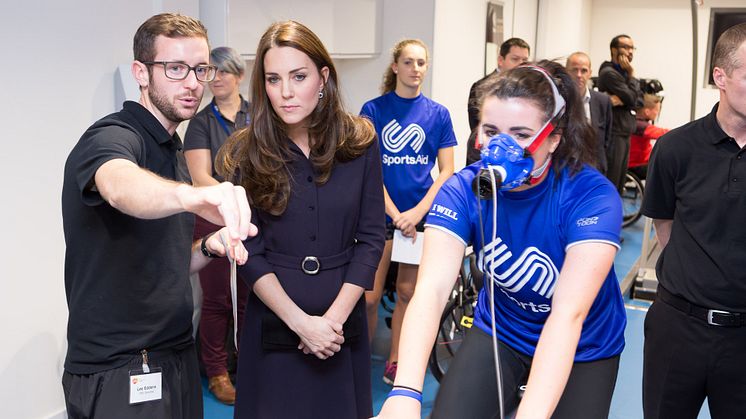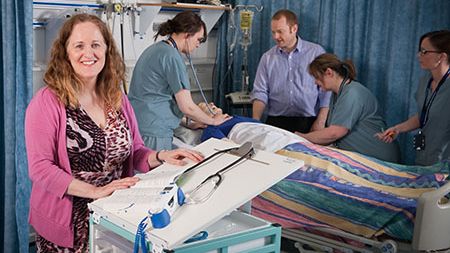
Press release -
Northumbria academic brings life-saving surgery to Sri Lanka for first time
A Northumbria University academic is playing the lead role in bringing heart and lung transplants to Sri Lanka – a country where this life-saving surgery has not previously been available.
Stephen Clark, Professor of Cardiothoracic Surgery and Cardiopulmonary Transplantation in Northumbria’s Department of Applied Sciences, is helping the College of Surgeons of Sri Lanka establish their first ever heart and lung transplantation programme.
Until now, no heart transplant has ever taken place in Sri Lanka and only one lung transplant has taken place, back in 2011. Anyone requiring such life-saving surgery would have to travel abroad and pay prohibitively high costs.
Prof. Clark, who is also Director of Cardiopulmonary Transplantation at Newcastle’s Freeman Hospital, is mentoring Sri Lanka’s College of Surgeons through their first operations. He will lead a team in the UK that will provide training, advice and practical support to surgeons undertaking these significant operations.
He explained: “We are fortunate to have a vibrant transplant programme here in the UK and in other westernised countries, so for many people it may seem unusual to hear that other countries have not been able to provide this life-saving surgery before now.
“We have been working with Sri Lankan doctors for over two years to form the Sri Lanka Society for Heart and Lung Transplantation which has now been approved under Sri Lankan law. The College of Surgeons of Sri Lanka is keen that Sri Lanka becomes a centre for excellence in transplantations for neighbouring countries.”
Prof. Clark was recently asked to deliver The Bartholemeusz Oration lecture at the College of Surgeons for his efforts to establish the transplant programme. He is the first non-Sri Lankan to be given the honour.
Earlier this year, Northumbria University announced the launch of the Northumbria Biomedical Science degree with BMS Business Management School in Sri Lanka. The organisations have worked in partnership for more than 12 years, delivering a range of courses allowing Sri Lankan students to remain in country but access a UK-quality higher education. The degree will help Sri Lanka to educate more professional biomedical scientists to work within local hospitals and clinics or to undertake research and development in the pharmaceutical and medical testing industries.
Julie Edgar, Associate Dean (International) in Northumbria University’s Faculty of Health and Life Sciences, said: “It is fantastic news to hear that Professor Clark is playing such a leading role in making these life-saving operations accessible for people in Sri Lanka. I have no doubt that his work will enhance the long-standing relationships the University has with organisations throughout Sri Lanka and South East Asia.”
Northumbria is in the top quartile in the UK for its research power in the area of Allied Health Professions and Nursing. More than 80% of the University’s research activity in this area was rated as being ‘world leading’ or ‘internationally excellent’ in the 2014 Research Excellence Framework, which measures the quality of research in UK universities.
Topics
Categories
Northumbria is a research-rich, business-focused, professional university with a global reputation for academic excellence. To find out more about our courses go to www.northumbria.ac.uk
If you have a media enquiry please contact our Media and Communications team at media.communications@northumbria.ac.uk or call 0191 227 4571.










